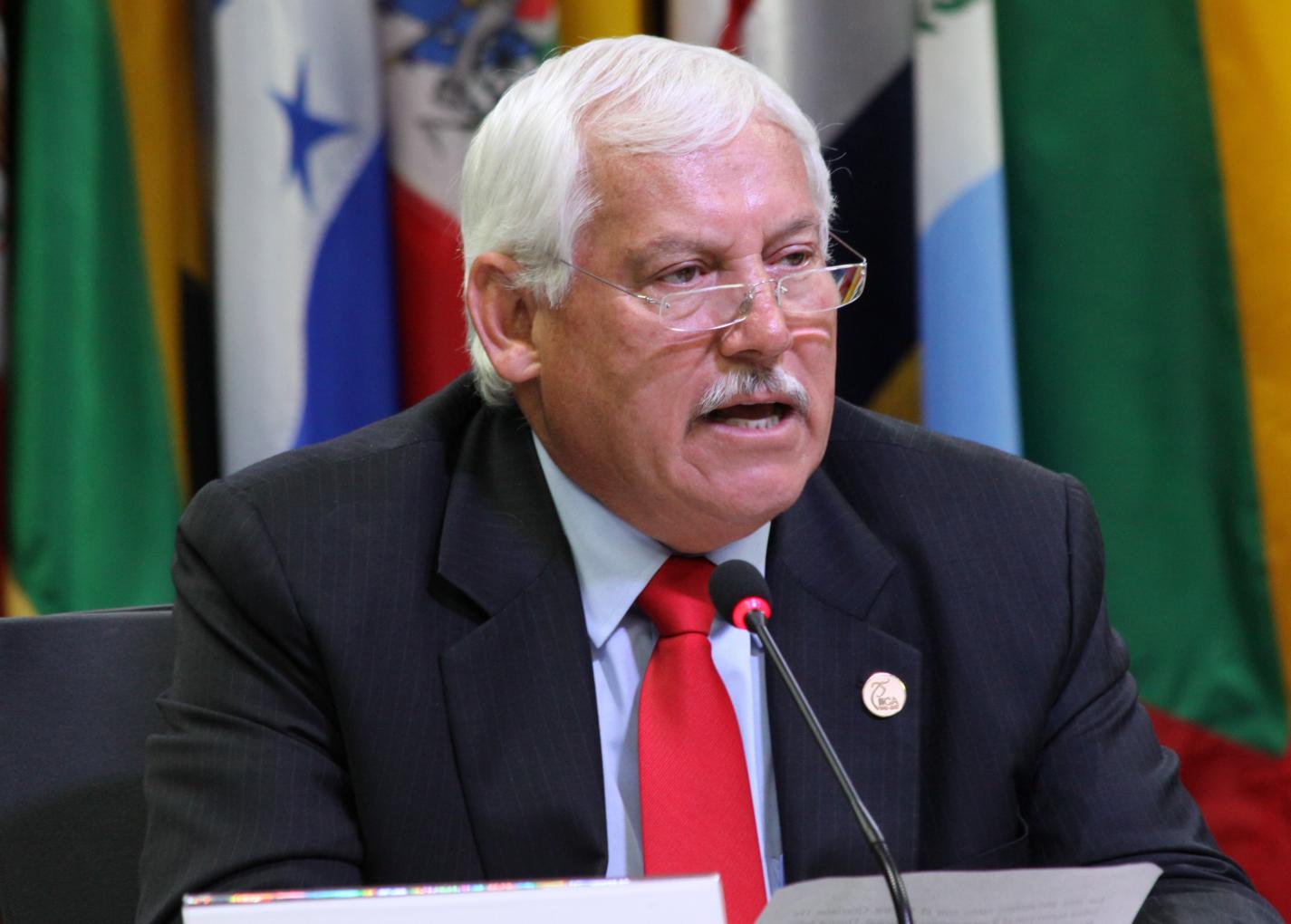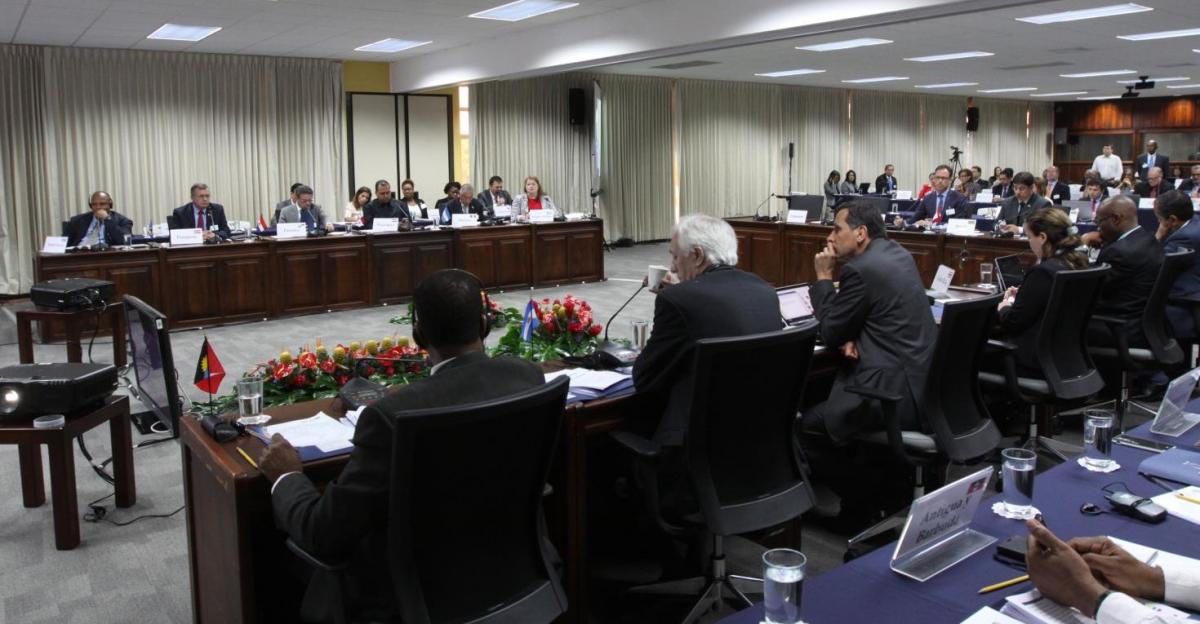Eight years of work, an abundant harvest of results

San Jose, 20 July 2017 (IICA). Ministers and delegates from the 12 countries comprising the Executive Committee of the Inter-American Institute for Cooperation on Agriculture (IICA), acknowledged the work this international organization has carried out under the leadership of Víctor M. Villalobos who, along with an exceptional technical and administrative team, has harvested significant results that benefit agricultural development and rural well-being in the Americas.
At IICA Headquarters, home of agriculture in the Americas, Villalobos presented the achievements the Institute has accomplished during his tenure: 5 hemispheric projects, 10 multinational projects, and 47 rapid response actions to urgent demands from member states. In addition, managing 200 projects of technical cooperation, amounting to close to USD 150 million, are testimony to his leadership.
"Eight years ago I appeared before this Committee to outline my work plan and ask for your vote to carry it out. That proposal centered on a very specific objective: strengthening the technical expertise of IICA to support the countries in achieving a productive, competitive, inclusive, and sustainable agriculture", Villalobos stated.
Within the framework of the 75th anniversary of the founding of IICA, the Director General reviewed the challenges that agriculture has faced over the past decade and presented the results within this context.
Building new capabilities has been a high point of Villalobos’ leadership. Thanks to in-person and virtual means, more than 52, 000 people were trained in climate change, innovation, trade, business, health, rural development, and public policies.
"I want to highlight the Scholarship program undertaken by IICA and CONACYT in Mexico, which started in 2012. The initial goal was to offer 100 scholarships per year to young professionals in our member states to pursue postgraduate programs in the field of agriculture and similar areas. Five years into its implementation and up to then end of the first half of 2017, 1,108 young students have been granted scholarships; of this number, 243 have already concluded their studies", stated the Director General.
This program is worth more than USD 30 million and the scholarships are equally distributed between men and women in 25 countries of the region; 56 young professionals are from countries in the Caribbean.
In addition, multinational projects were financed to benefit 25 countries in the Americas via the Technical Cooperation Fund (FonTC) of IICA; more than USD 1.8 million of the Institute’s own funds were invested.
A total of 32 agricultural chains in 23 countries improved their competitiveness through training in IICA-led projects. The adoption of policies and differentiated programs was promoted to provide better service, and has become a source of information for resilience of production systems, adaptation of agriculture to climate change, as well as management and sustainable use of land and water, among other topics.
“The future of the people of the Americas is closely linked to agriculture; supporting it will be crucial to banish, once and for all, the specters of poverty and hunger”, Villalobos stated during his last address before the Committee.

An administration supported by actions
The members of the Committee, presided by Bryce Quick, Chief Operating Officer of the United States Department of Agriculture (USDA), emphasized the work carried out by the Institute as the inter-American body, par excellence, in charge of promoting a more prosperous agricultural sector in the hemisphere. The need to strengthen the finances of the Institute to boost technical cooperation activities was also acknowledged.
“The resources that countries contribute to IICA are an investment that return as growth, production, and productivity. They are not public expenditure, but rather opportunities for a country to improve its agriculture”, asserted Caio Rocha, National Secretary for Food and Nutritional Security of Brazil.
The Minister of Agriculture, Lands, and Fisheries of Antigua and Barbuda, Arthur Nibbs, highlighted IICA’s leadership in education, as well as the collaborative effect the Institute promotes by opening up the way to achieving success.
“We support the efforts carried out by IICA in technical training for the region, such as strengthening capacities for adopting agricultural health standards and analyzing how each country can benefit from biotechnology”, concluded the Michael Gort, the Canadian Ambassador in Costa Rica.
More information:
Evangelina Beltran, Coordinator of the Office of the Director General. evangelina.beltran@iica.int